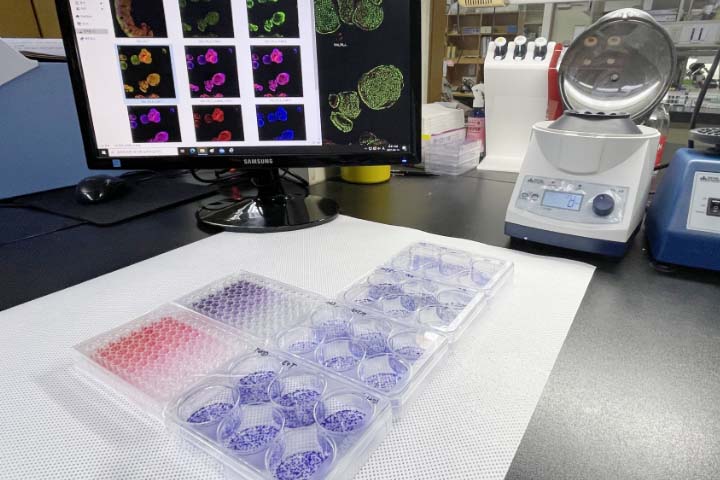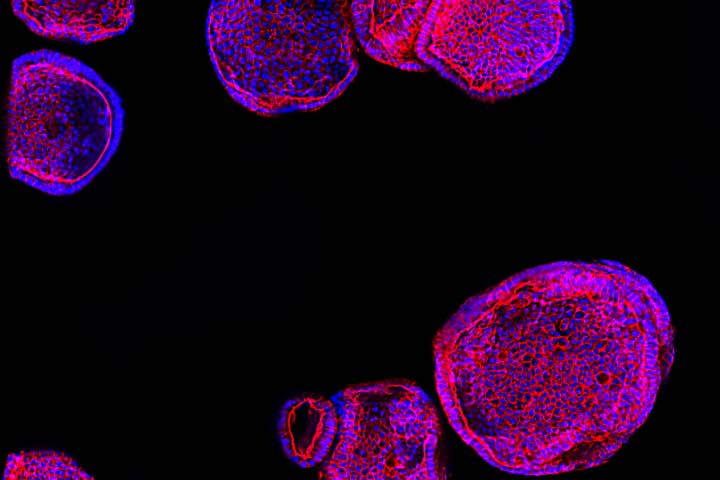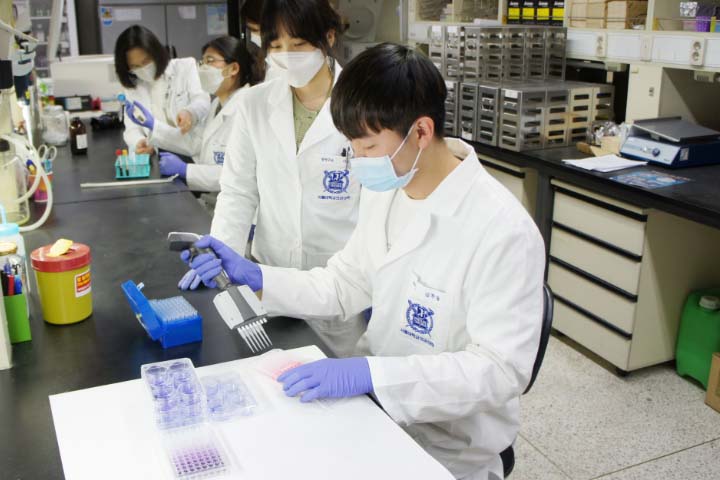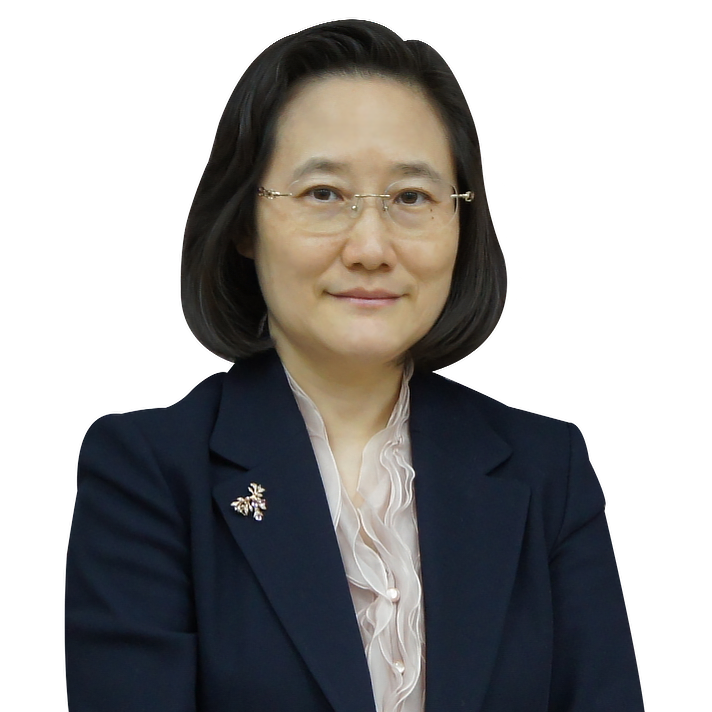
Overview
Global Leading Cancer Research Institute



The Seoul National University Cancer Research Institute (SUN CRI) was established as a non-profit, independent, scientific organization on September 12, 1963 with the following research topics: carcinogenesis and pathogenesis, cancer epidemiology, cancer diagnosis, next-generation treatment strategies for cancer, translational cancer research, anti-cancer therapy and its resistance mechanism, and cancer prevention. SNU CRI ranked 14th in the worldwide field of cancer research capability (1st in the domestic field of cancer research capability) in the year 2020 and has been steadily growing.
It has been providing the academic insights about cancer for nearly 60 years. In addition, ‘Interdisciplinary Cancer Biology Graduate Course’ was founded in the year 1997 to train specialized cancer researchers.
Furthermore, the Korea Cell Line Bank (KCLB) is located at SNU CRI. KCLB is one of the largest biological resource center establishing the patient-derived cancer cell lines in Korea. KCLB distribute established cancer cell lines to domestic and international researchers from the year 1987.


Leading institute of cancer translational research


Conquering cancer


Human resource cultivation
Vision
The SNU CRI was established to play the role of a foothold organization of cancer research and human resource cultivation based on basic and translational cancer researches in collaboration with domestic and international researchers to conquer cancer.
In addition, it has the goal of becoming a cancer research institute that enters within the top 10 ranks in the near future through the steady growth based on such a history and tradition.
Message from the Director


Since inception in 1963, Seoul National University Cancer Research Institute (CRI) has long been recognized for its excellence in basic and translational research in the field of oncology. It has become one of global leading center for cancer research and education owing to the dedication of professors, researchers, students, and staffs of the institute. CRI focuses on tumor biology and multidisciplinary cancer research and provide new insights of tumor biology and tailored cancer treatment strategies. Now, we can also contributes to the improvement of the quality of life by developing new strategies for cancer prevention, early detection and molecular imaging.
The accomplishment of this aim can be facilitated by maximizing the synergistic collaboration among the basic scientists, translational researchers, and clinicians with other related research fields such as biology, chemistry, pharmacy, and veterinary medicine. SNU CRI always welcome to work with global pharmaceutical companies, medical device companies, and new imaging companies for innovative strategies.
One of important contributing strategy is to educate and train excellent graduate students and researchers who can boost the research activity with creative ideas and persistent efforts. The Interdisciplinary Graduate Program in Cancer Biology was established in 1998 and the diversified components of the cancer-related laboratory are incorporated into the design of our graduate program to challenge its graduate students to become leaders in science and in academic society. Thus, every young ambitious scientist and medical doctor is welcome to join our institute and Cancer Biology graduate program and to challenge together for the various cancer research adventures.
Finally, continuous supports from university, hospital, government, and most importantly the citizens will make CRI to develop worldwide excellent cancer institute.
I am sure that we can make a great contribution to overcoming cancer by hand in hand efforts of all the members of our institute.
Director
Seoul National University Cancer Research institute
